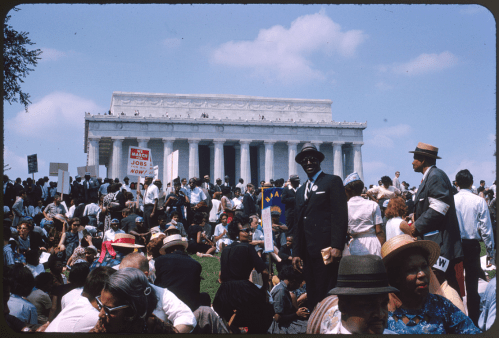The biggest news in state and local immigration matters of the last week undoubtedly comes from Alabama. In 2011, the state legislature passed HB 56, a restrictive bill similar to Arizona’s SB 1070. On Tuesday, many of the bill’s harsh provisions were “permanently blocked” as Alabama “reached proposed settlements with civil rights groups and the federal government.”
NPR has a list of the provisions, which included provisions requiring schools to verify immigration status, the criminalization of soliciting work by unauthorized immigrants, and establishing penalties for renting housing or sharing a car with unauthorized immigrants.
If laws like Alabama’s are illegal, how can we interpret California’s suite of legislation that occupies the other end of the spectrum? Last week Charles Lane of the Washington post discussed the essential question, asking, “Can a permissive immigration law be legal if a punitive law wasn’t?”
Preceding the state laws in Arizona and Alabama, the cities of Hazleton, PA, Farmer’s Branch, TX, and Fremont, NE formed a trio notorious for enacting punitive laws regarding unauthorized immigrants. Despite seemingly endless legal battles Hazleton and Farmer’s Branch, “have petitioned the U.S. Supreme Court to review lower court decisions invalidating local immigration enforcement legislation.” Action in Fremont is also notable; while the Fremont City Council recently took the first steps to repeal some of its legislation, opponents remained numerous and vocal.
Driver’s licenses for undocumented immigrants remains a hot issue. Beginning this December, undocumented immigrants in Illinois can apply for licenses at some state DMV offices. The application process will expand to more DMV sites in January 2014. The licenses are “temporary visitor driver’s licenses” and will not be valid for identification purposes. Immigrants in Nevada will also soon have access to licenses; beginning in January 2014. On the other hand, the District of Columbia Council is revising its position on driver’s licenses to comply with the Real ID Act, deciding to label licenses “not valid for official federal purposes.”
In other driving related news, while Jackson County, North Carolina is adjusting its seatbelt checkpoint policy to address racial profiling, racial profiling at checkpoints around the Philadelphia metropolitan area is beginning to make waves.
Last week was full of examples of local opportunities of immigrant integration. With upcoming elections there is significant focus on civic participation of immigrants. Democrats in the Virginia gubernatorial campaign are looking to capitalize on immigrant voters and Minneapolis may soon be home to the nation’s “first Somali American elected to the City Council”. In Arizona, the “two-tiered voting system for those who registered to vote using federal registration forms,” will be posed to the public in a 2014 referendum.
In California, former Department of Homeland Security Secretary and current University of California President Janet Napolitano “is devoting $5 million to provide special counseling and financial aid for students living in the U.S. illegally.” In Colorado, immigration sponsorship rights were extended to married same-sex couples.
In terms of potential opportunities, the National Journal covered the revitalization immigrants can bring to shrinking cities and the New York Times discussed the expanding role of microcredit in the United States, which could be valuable to immigrant entrepreneurs.
However, in other places challenges remain. In poultry processing areas like Missouri’s Ozarks, some schools struggle to adjust to the needs of their rapidly changing student bodies, many of whom are recently resettled refugees or new immigrants. In New York City, budget cuts are hitting libraries, which often serve as a vital community resource for new immigrants.


Commentary
This Week in Immigration Reform: Alabama Law Blocked
November 4, 2013